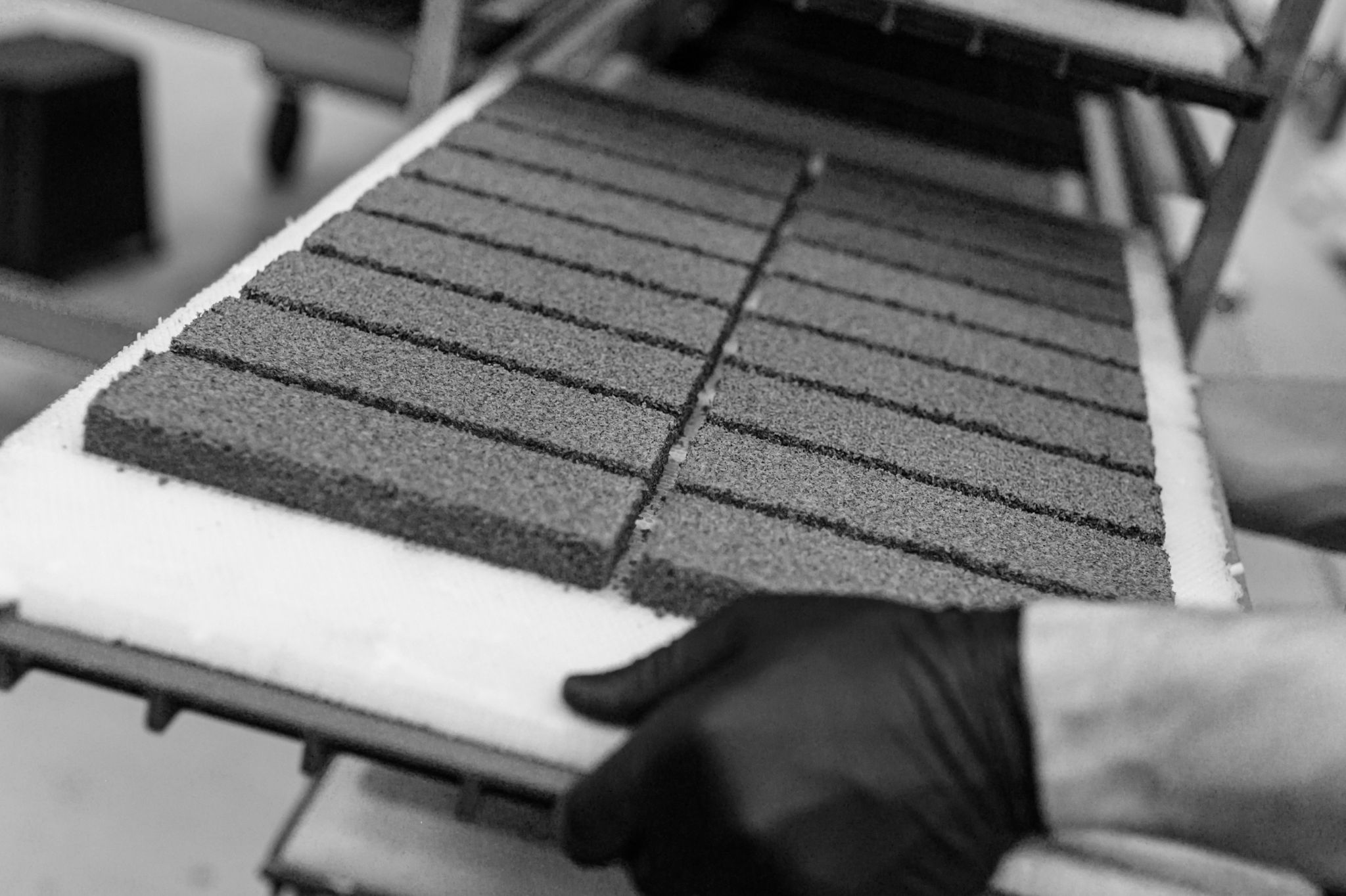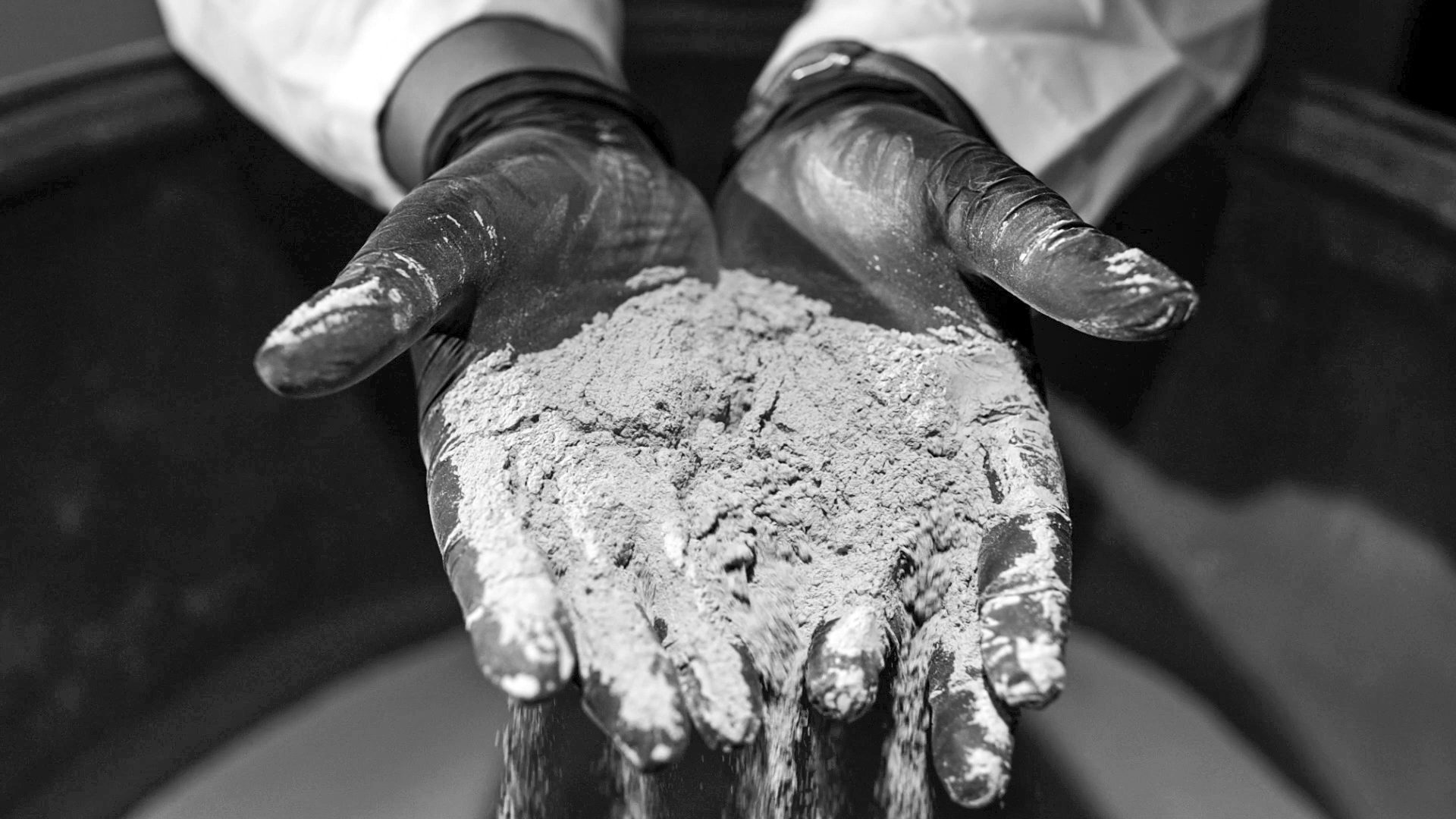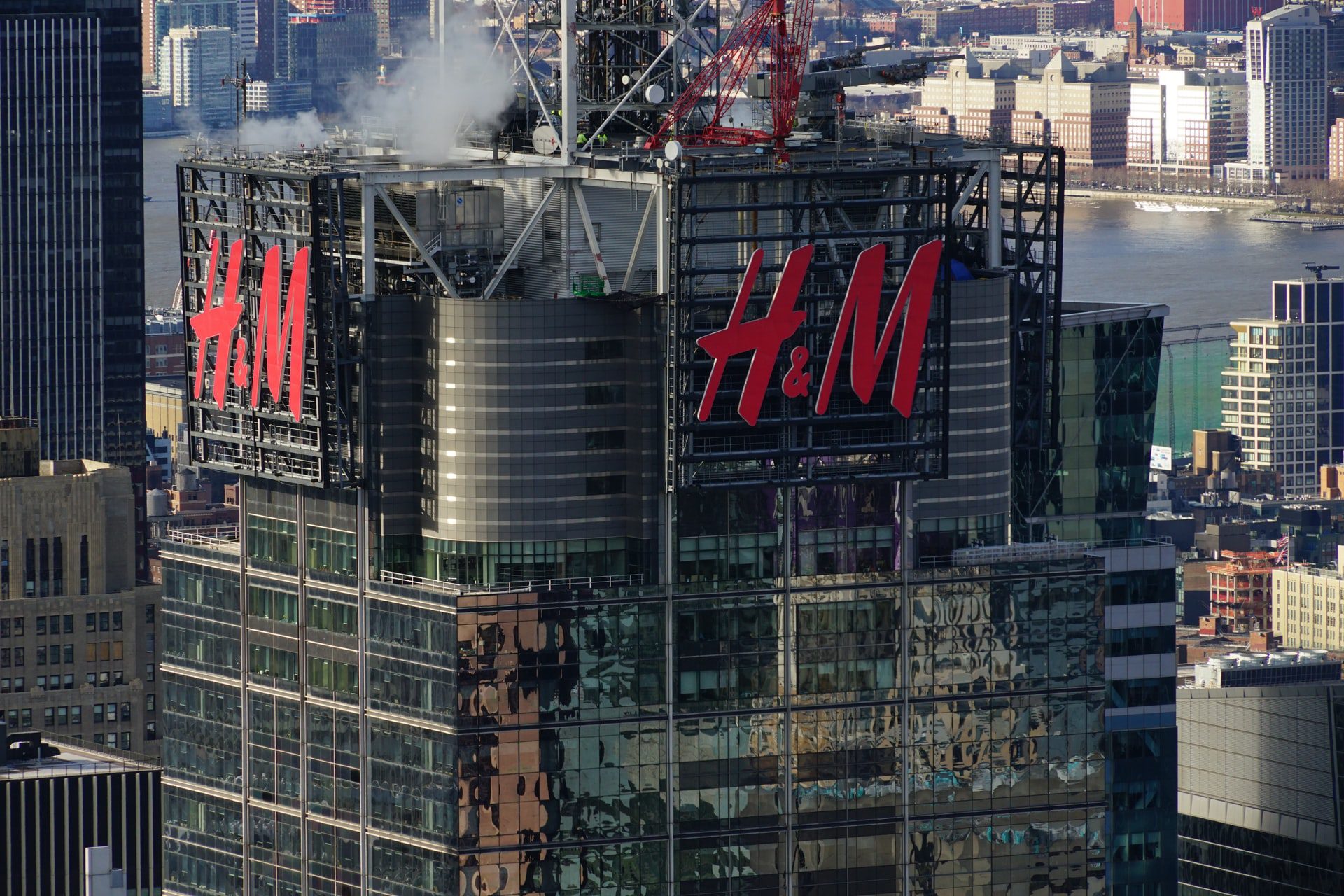H&M Group, one of the largest clothing retailers in the world, recently announced a partnership with Biomason to use biocement floors in new and refurbished stores. The use of the new flooring will replace traditional cement, which is far from environmentally friendly to produce. H&M is now the first company in the world to use smart biology to produce flooring.
The fast-fashion company with over 500 locations in the U.S. alone, is working toward a sustainable future, and the switch to sustainable flooring is an important step. The global demand for cement and concrete is high, but comes with a massive environmental price tag: traditional cement production is responsible for nearly 10 percent of global carbon dioxide emissions, producing more carbon than all countries except for China and the United States. It’s the second-most consumed substance in the world after water.
For the Research Triangle, North Carolina-based Biomason, the partnership is a leap onto the world stage for its revolutionary biocement technology. The company is the only one in the world that makes cement from bacteria. For the past decade, co-founder and CEO Ginger Krieg Dosier has been working on the process. The final product is 15 percent biocement and 85 percent recycled granite.

“We look to the blueprints that nature gives us to rethink concrete,” she said. “Whether we’re looking at a coral or a seashell or exoskeletons or limestone rock, it’s fundamentally the same material.”
Biomason’s unique process is based on how coral grows naturally. Biomason turns harmless bacteria into calcium carbonate, which bonds with grains of sand at normal temperatures – eliminating the very high temperatures needed to make traditional concrete. Using a lesson learned from a strong and resilient ocean organism, Biocement has huge plans to revolutionize cement across the world. In fact, the company believes it can reduce the concrete industry’s carbon footprint by 25 percent before 2030. The H&M Group partnership has sparked interest from other European corporations, and there are already plans for a Biomason European manufacturing facility.

“This partnership solidifies Biomason’s position at the forefront of employing biology to solve global climate challenges in cement and concrete,” Dosier added. “Our biocement technology is ushering in a new era of construction: one that uses carbon as a building block rather than emitting it as a byproduct.”
Using Biomason’s biocement floors is a part of H&M’s goal to use only sustainably sourced or 100 percent recycled materials by the end of the decade. H&M is glad to be a trendsetter in this department and hopes many other companies will follow suit as it looks for green solutions for the retail industry.
“Until now, we have only been able to reduce emissions caused by these materials by using less of them. That is simply not enough,” said Martin Ekenbark, a Project Manager at H&M Group’s Circular Innovation Lab. “Biomason’s technology can provide a crucial component to achieving carbon neutrality in our built environments, from stores to offices to production facilities.”
H&M Group has more than 5,000 stores worldwide (including company umbrella brands Weekday and Cos) and is currently working on a prototype for the biocement tiles, with plans to introduce them to stores in 2022.





